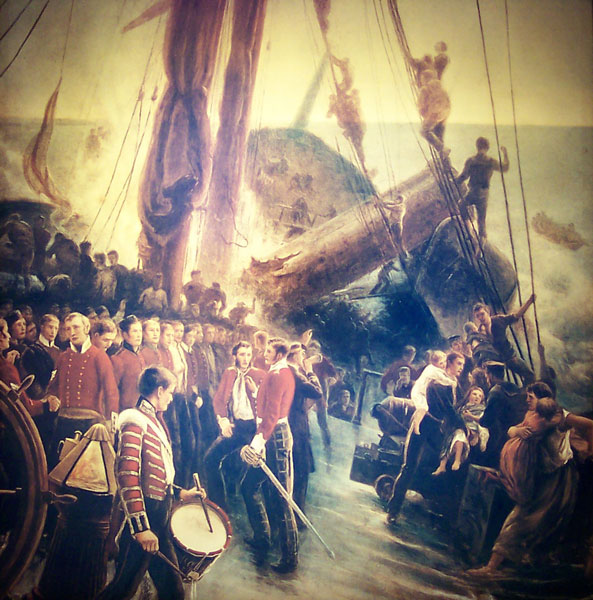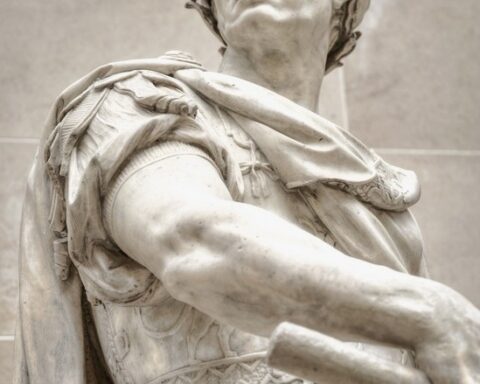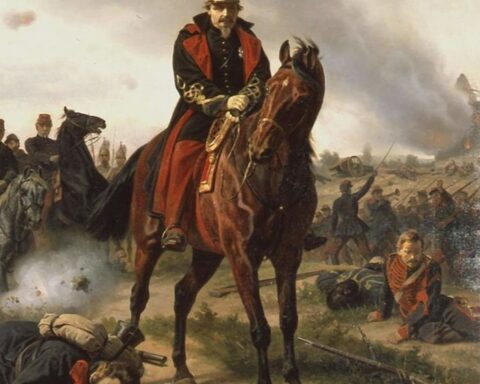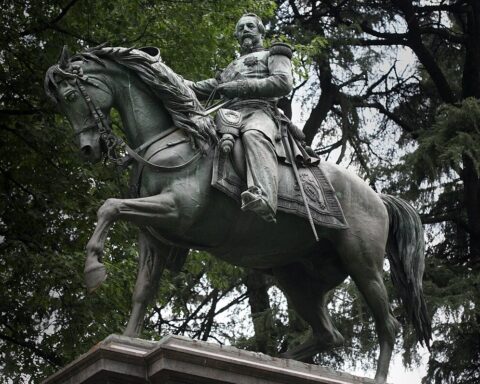The Loss of the Birkenhead
Right on our flank the crimson sun went down;
The deep sea rolled around in dark repose;
When, like the wild shriek from some captured town,
A cry of women rose.
The stout ship Birkenhead lay hard and fast,
Caught without hope upon a hidden rock;
Her timbers thrilled as nerves, when through them passed
The spirit of that shock.
And ever like base cowards, who leave their ranks
In danger’s hour, before the rush of steel,
Drifted away disorderly the planks
From underneath her keel.
Then amidst oath, and prayer, and rush, and wreck,
Faint scream, faint questions waiting no reply,
Our colonel gave the word, and on the deck
Formed us in line to die.
To die! ‘Twas hard, whilst the sleek ocean glowed
Beneath a sky as fair as summer flowers;
All to the boats! cried one; he was, thank God,
No officer of ours.
Our English hearts beat true; we would not stir;
That base appeal we heard, but heeded not;
On land, on sea, we had our colors, sir,
To keep without a spot.
They shall not say in England, that we fought
With shameful strength, unhonored life to seek;
Into mean safety, mean deserters brought
By trampling down the weak.
So we made women with their children go;
The oars ply back again, and yet again;
Whilst inch by inch, the drowning ship sank low,
Still under steadfast men.
What follows, why recall? The brave who died,
Died without flinching in the bloody surf,
They sleep as well, beneath that purple tide,
As others under turf.
If that day’s work no clasp or medal mark;
If each proud heart no cross of bronze may press,
Nor cannon thunder loud from Tower or Park;
This feel we none the less:-
That those whom God’s high grace there saved from ill,
Those also left His martyrs in the bay,
Though not by siege, though not in battle, still
Full well had earned their pay.
~~Sir F.H. Doyle
In 1852 a steamer, the Birkenhead, struck on a hidden rock during one of her voyages. She sank soon after carrying some 400 soldiers with her.
I found this poem with an alternate ending, replacing the last two stanzas with this one. I find them both to be pleasing, although I do not know where this came from. The one above was as written down 100 years ago.
They sleep as well! and, roused from their wild grave,
Wearing their wounds like stars, shall rise again,
Joint-heirs with Christ, because they bled to save
His weak ones, not in vain.










5
I had to google this name before reading this. What amazing men, and they all went down with the ship, while making sure their families survived. This tragedy is also where the saying of “women and children first” came about. I salute you soldiers of the Birkenhead. You did very very well.